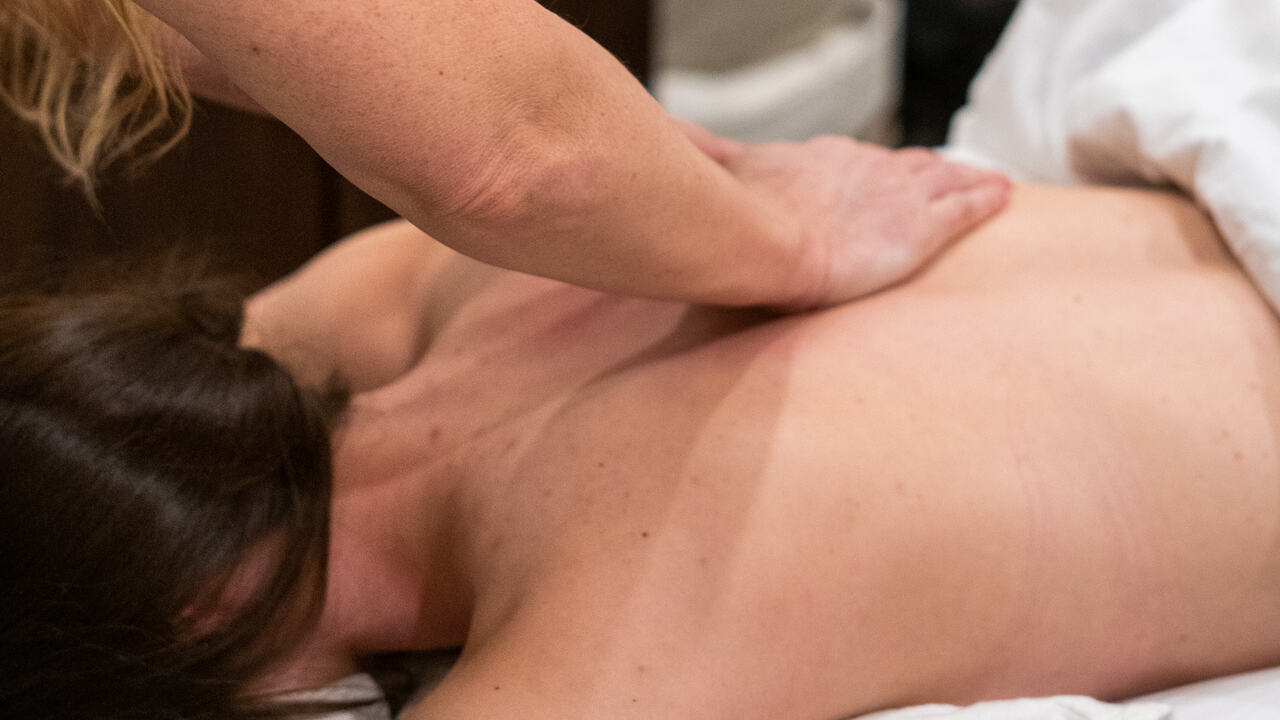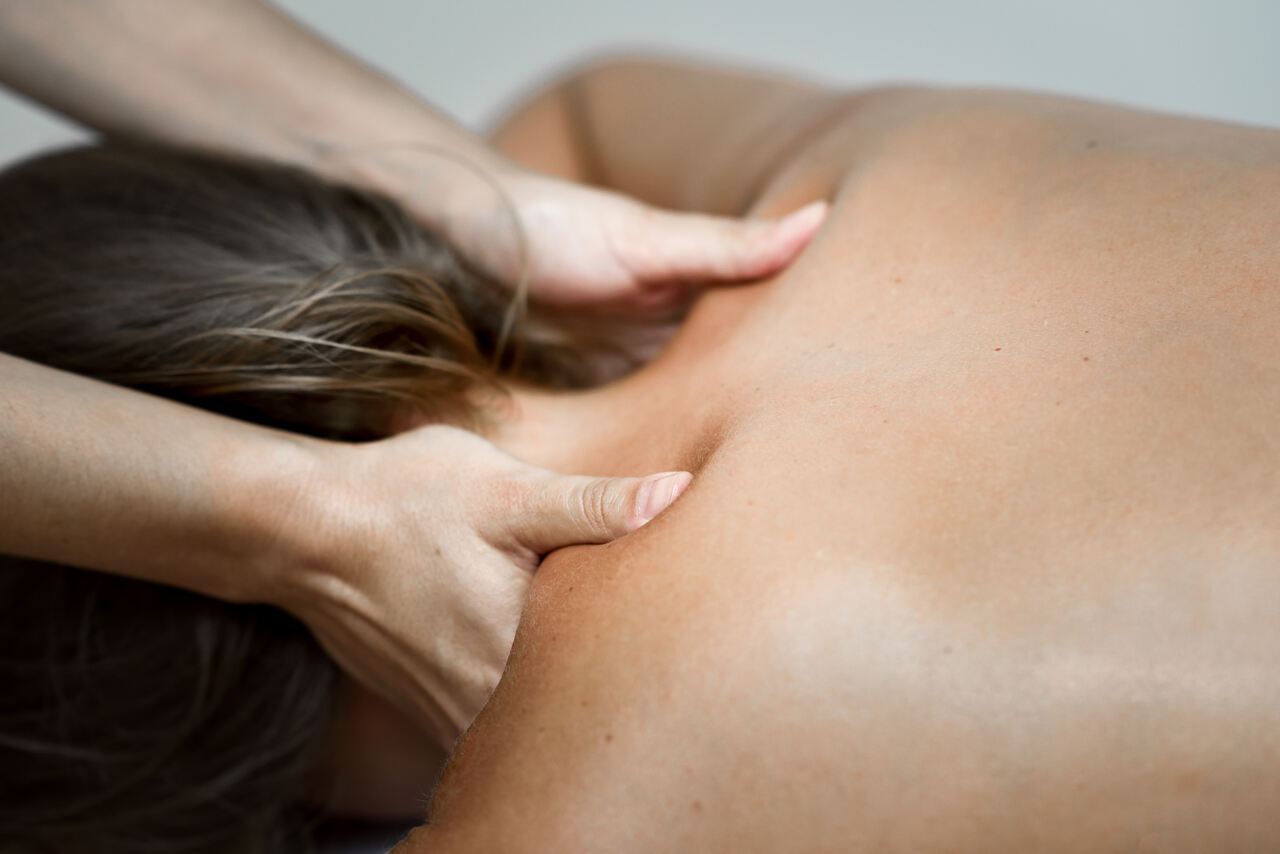
In today’s fast-paced world, finding effective ways to manage stress is crucial for maintaining overall well-being. One of the most popular methods for achieving stress relief and relaxation is massage therapy. Various massage techniques cater to different stress relief needs, ensuring a personalized and deeply relaxing experience. Let’s explore how incorporating massage into your routine can help relieve stress.
Holistic Stress Relief: Benefits of Massage Therapy
Massage therapy, a renowned method for stress relief and relaxation, offers a multitude of benefits.
- Reduces Muscle Tension: Stress often causes muscles to contract and become tense, leading to discomfort and pain. Massage techniques, such as kneading and stretching, help to relax these muscles, alleviate tension, and reduce pain.
- Enhances Blood Circulation: The manipulation of soft tissues during a massage promotes better blood flow, which helps deliver oxygen and nutrients to muscles and tissues. This enhanced circulation aids in the removal of metabolic waste products, reducing inflammation and promoting overall health.
- Lowers Cortisol Levels: Cortisol, known as the stress hormone, can have numerous negative effects on the body when produced in excess. Massage therapy has been shown to lower cortisol levels, thereby reducing stress and its associated symptoms. Lower cortisol levels can lead to improved mood, better sleep, and a stronger immune system.
- Boosts Endorphin Production: Massage therapy stimulates the production of endorphins, the body’s natural painkillers and mood enhancers. These chemicals help to induce a sense of well-being and relaxation, making it easier to manage stress and anxiety. The release of endorphins during a massage can also provide pain relief and enhance overall mood.
- Improves Sleep Quality: Stress and muscle tension can significantly impact sleep quality. Regular massage therapy can help improve sleep patterns by promoting relaxation and reducing stress levels. Better sleep quality contributes to overall health and well-being, making it easier to cope with daily stressors.
- Promotes Mental Clarity and Relaxation: Massage therapy not only benefits the body but also the mind. By reducing physical tension and promoting relaxation, massage therapy can help improve mental clarity and focus. This mental relaxation allows individuals to approach stressful situations with a clearer mind and a more positive outlook.
- Strengthens the Immune System: Chronic stress can weaken the immune system, making the body more susceptible to illness. By reducing stress levels and promoting relaxation, massage therapy helps to strengthen the immune system, making it easier to fight off infections and maintain overall health.
Beyond just reducing stress levels, massage plays a vital role in promoting overall well-being. By easing muscle tension, enhancing blood circulation, and decreasing the production of cortisol, massage contributes to a holistic approach to health.
Different Types of Massage for Stress Relief
Various massage techniques cater to different stress relief needs. For instance, deep tissue massage excels at addressing deep-seated muscle tension and fostering deep relaxation. On the other hand, Swedish massage focuses on gentle strokes to knead the muscles and enhance blood flow, providing a soothing experience. Here are some of the best massage techniques specifically designed to provide effective stress relief:
- Deep Tissue Massage: Deep tissue massage is particularly effective for relieving severe muscle tension and stress. This technique focuses on the deeper layers of muscle and connective tissue, using slow, deliberate strokes and deep finger pressure to alleviate tight muscles and knots. Deep tissue massage is ideal for those who experience chronic stress and muscle tension, as it helps to break down adhesions and improve overall muscle function, leading to profound relaxation and stress relief.
- Swedish Massage: This is one of the most popular types of massage for stress relief. It involves long, gliding strokes, kneading, and circular movements on the topmost layers of muscles. This gentle approach helps to improve circulation, ease muscle tension, and promote relaxation. The soothing and rhythmic motions of Swedish massage make it an excellent choice for individuals looking to reduce stress and enhance overall well-being.
- Myofascial Release: This is a technique that targets the fascia, the connective tissue that surrounds muscles and organs. This type of massage involves applying sustained pressure to areas of tension, helping to release tightness and improve mobility. Myofascial release is beneficial for reducing stress by alleviating chronic pain and improving overall body function. It can help individuals feel more relaxed and less constrained by physical discomfort.
- Trigger Point Massage: Trigger point massage focuses on identifying and releasing trigger points, which are tight areas within muscle tissue that can cause pain in other parts of the body. This technique involves applying pressure to these points, often resulting in immediate relief from discomfort and stress. Trigger point therapy is highly effective for individuals who experience stress-related muscle pain and tension, offering targeted relief and promoting relaxation.
 Ideal Frequency of Massage
Ideal Frequency of Massage
To achieve optimal stress relief benefits, integrating massages into your routine regularly is highly recommended. The frequency of massages can be personalized to align with individual needs and preferences, ensuring a tailored approach to stress management. Seeking guidance from a skilled massage therapist can assist in determining a personalized strategy to meet your specific stress relief objectives.
By combining diverse massage techniques that target various areas of the body and employ a range of strokes, you can amplify the overall relaxation and stress-relieving effects. This comprehensive approach to massages not only enhances physical well-being but also nurtures mental tranquillity, offering a complete solution for stress relief and relaxation.
Lifestyle Changes That Can Help with Stress Relief
Managing stress effectively often requires more than just occasional relaxation techniques; it involves making sustainable lifestyle changes that promote overall well-being. Here are some key lifestyle adjustments that can significantly help with stress relief:
- Regular Physical Activity: Engaging in regular physical activity is one of the most effective ways to combat stress. Exercise releases endorphins, which are natural mood lifters. Whether it’s a daily walk, yoga, swimming, or a gym workout, incorporating physical activity into your routine can help reduce stress levels and improve overall health.
- Adequate Sleep: Getting enough sleep is essential for stress management. Poor sleep can increase stress levels and make it harder to cope with daily challenges. Aim for 7-9 hours of quality sleep per night by maintaining a regular sleep schedule and creating a relaxing bedtime routine.
- Mindfulness and Meditation: Practicing mindfulness and meditation can significantly reduce stress by promoting relaxation and helping you stay focused on the present moment. Techniques such as deep breathing, progressive muscle relaxation, and guided imagery can also help calm the mind and reduce anxiety.
- Time Management: Effective time management can help reduce stress by allowing you to prioritize tasks and avoid feeling overwhelmed. Creating a schedule, setting realistic goals, and breaking tasks into smaller steps can make your workload more manageable and reduce stress.
- Social Connections: Maintaining strong social connections can provide emotional support and help you manage stress. Spending time with family and friends, joining social groups, or participating in community activities can foster a sense of belonging and reduce feelings of isolation.
- Hobbies and Leisure Activities: Engaging in hobbies and leisure activities that you enjoy can be a great way to unwind and reduce stress. Whether it’s reading, gardening, painting, or playing a musical instrument, taking time for activities that bring you joy can improve your overall well-being.
- Professional Help: Sometimes, managing stress requires professional help. Therapists, counsellors, and stress management coaches can provide guidance and strategies tailored to your specific needs. Don’t hesitate to seek professional assistance if you find it challenging to manage stress on your own.
You Deserve a Stress-Free Life
Regular massages can be a game-changer in managing stress and promoting overall well-being. At Affinity Wellness in Kelowna, our skilled therapists are dedicated to helping you achieve optimal relaxation and stress relief through personalized massage strategies.
Don’t let stress control your life any longer. Book your appointment today and discover the transformative power of massage therapy. Let us help you on your journey to a healthier, happier you.
Frequently Asked Questions
What Are the Benefits of Massage Therapy for Stress Relief?
Massage therapy offers stress relief benefits by reducing muscle tension, improving blood circulation, and lowering cortisol levels, known as the stress hormone. These combined effects promote overall well-being and relaxation.
Which Massage Techniques Are Recommended for Deep Relaxation?
Techniques like deep tissue massage target deep-seated muscle tension, while Swedish massage focuses on gentle strokes to enhance blood flow and induce relaxation. Both methods cater to different stress relief needs, providing a soothing experience.
How Often Should One Schedule Massages for Optimal Stress Relief?
To maximize stress relief benefits, integrating massages into your routine regularly is advised. The frequency of massages can be personalized to suit individual preferences and stress management goals, ensuring a tailored approach to relaxation.


 Ideal Frequency of Massage
Ideal Frequency of Massage